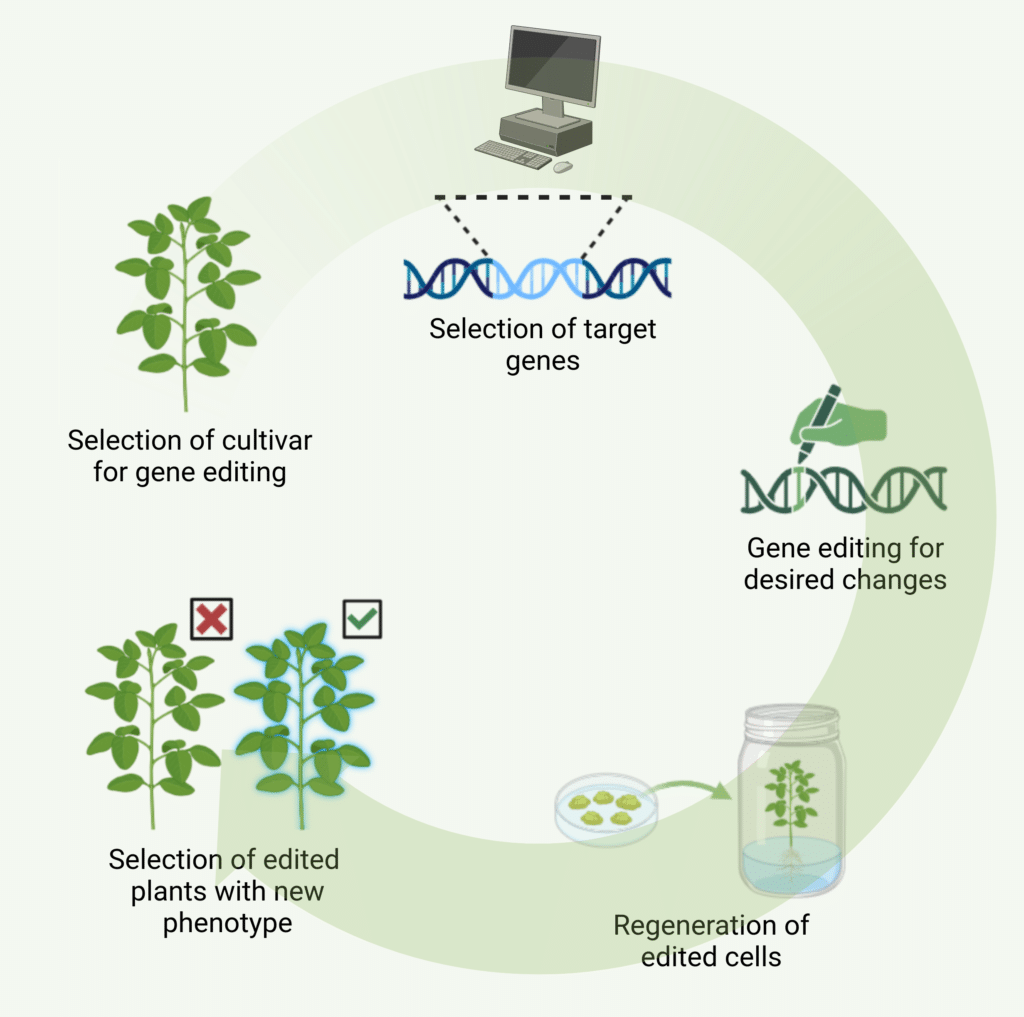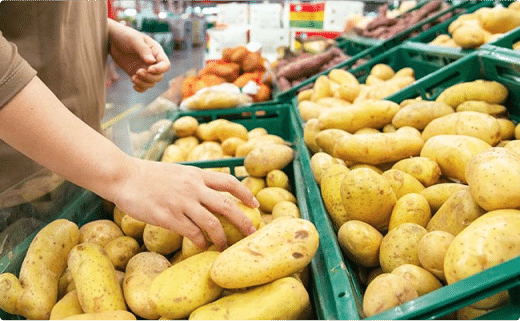
The TuberGene project is a cutting-edge initiative focused on improving the quality, resilience, and marketability of potatoes, one of the world’s most vital staple crops. In response to the challenges facing the UK potato industry, which produces around five million tonnes annually, TuberGene is utilising advanced gene editing techniques to develop improved potato varieties. By targeting specific traits such as bruise resistance, faster cooking times, and enhanced nutritional value, the project aims to meet growing consumer demands while ensuring a sustainable and efficient future for potato production.


Key Challenges:
The challenge driving this research project stems from the need to improve the quality, resilience and marketability of potatoes, one of the world’s most important staple crops, while meeting growing consumer expectations. The UK potato industry faces significant challenges, including declining potato sales and increasing consumer expectations for better quality and convenience. Current potato varieties are prone to bruising and longer cooking times, leading to waste and reduced consumer satisfaction. Additionally, potato crops are vulnerable to diseases and environmental stresses, which further impact yield and quality. With these issues in mind, there is an urgent need for innovation to improve production efficiency, reduce food waste, and safeguard the future of this £150 million sector.
The Solution
TuberGene uses cutting-edge gene editing technology to improve potato varieties by producing gene-edited potatoes, aiming to enhance consumer satisfaction in this essential staple crop.
TuberGene is addressing these challenges by harnessing gene editing to enhance key potato traits. By identifying and editing specific genes, B-Hive is developing potatoes that bruise less, cook faster, and offer improved taste and nutritional value. The project has successfully generated plantlets with the targeted genetic edits, which are now undergoing rigorous testing to confirm the precision and effectiveness of the modifications. This ground-breaking initiative aims to reduce bruising-related discolouration and optimise cooking times. Additionally, advanced genetic analysis is paving the way for further improvements, with the ultimate goal of creating a “super spud” that resists diseases, reduces waste, and meets consumer expectations. Through this advanced technology, TuberGene is paving the way for a more sustainable and efficient future for the potato industry enhancing potato quality, increasing shelf life, and reducing food waste.
What is Gene Editing?
Gene editing is an advanced biotechnology that allows scientists to make precise, targeted changes to the DNA of living organisms, including plants. Using tools like CRISPR, scientists can identify and modify specific parts of the genetic code to enhance desirable traits. In the case of crops like potatoes, gene editing can improve resistance to diseases, enhance nutritional content, or even increase resilience to environmental stresses such as drought. What sets gene editing apart from traditional breeding methods is its precision and speed. While conventional methods can take years and are often unpredictable, gene editing offers a more efficient and accurate way to achieve results that could naturally occur over time.
Find out more about TuberGene
To find out more about the TuberGene project, please get in touch.
TuberGene is a collaboration with:

